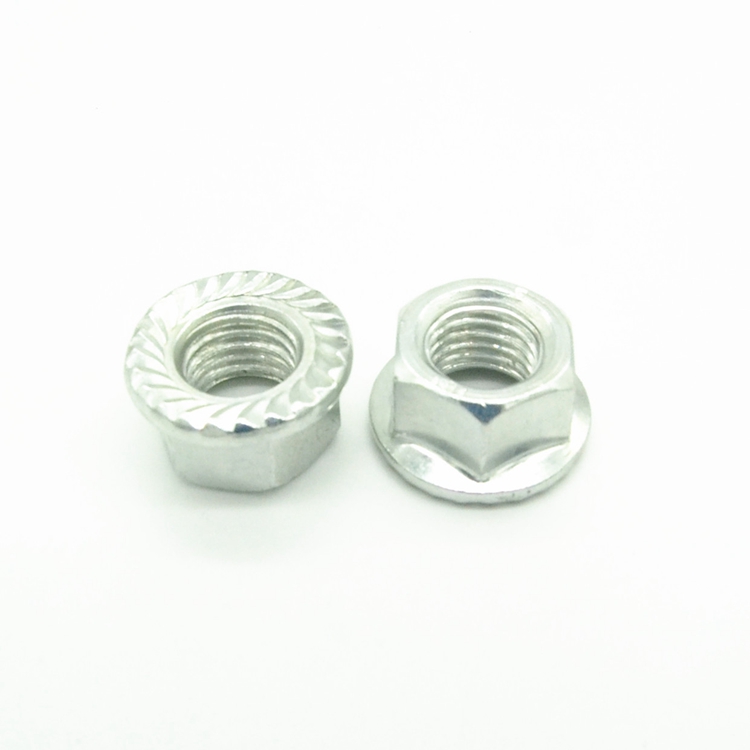Stud Bolt Specifications for A193 B7 and A194 2H Applications
Nov . 07, 2024 23:57 Back to list
Stud Bolt Specifications for A193 B7 and A194 2H Applications
Understanding Stud Bolts A Deep Dive into ASTM A193 B7 and A194 2H
Stud bolts are essential components in numerous industries, providing the strength and reliability needed for structural integrity in various applications. Among the different specifications available, ASTM A193 B7 and ASTM A194 2H stud bolts are highly regarded for their performance in high-temperature and high-pressure situations. This article will explore the properties, applications, and advantages of these specific stud bolts.
What Are Stud Bolts?
Stud bolts are elongated fasteners with threads on either end. They are primarily used in conjunction with nuts to secure two flanged components together. Unlike traditional bolts, stud bolts do not have a head; instead, they are designed to be inserted into a pre-tapped hole or through a flanged connection.
ASTM A193 B7 The High-Strength Bolt
ASTM A193 B7 is a specification that covers high-strength bolts made from alloy steel, specifically designed to withstand elevated temperatures and high-pressure environments. This material grade exhibits excellent mechanical properties and is suited for applications involving heavy loads and harsh conditions, such as in pressure vessels, piping systems, and heavy machinery.
The B7 stud bolts are typically heat-treated to improve their yield strength, ensuring that they can maintain their integrity under stress. They have a minimum tensile strength of 125 ksi (kilo pounds per square inch) and a yield strength of at least 105 ksi, making them suitable for critical applications in industries like oil and gas, power generation, and petrochemicals.
ASTM A194 2H The Complementary Nut
To accompany the B7 stud bolts, ASTM A194 2H nuts are often used. These nuts are made from a carbon and alloy steel combination that provides exceptional strength and durability. Similar to B7 bolts, A194 2H nuts are designed for high-stress applications, often found in situations where environmental conditions can be harsh, such as in chemical plants and power stations.
The A194 2H nuts feature a tensile strength of 125 ksi, ensuring that they can provide an optimal grip on the stud bolts. The synergy of B7 studs with A194 2H nuts allows for robust assembly, preventing loosening or failure even under demanding conditions.
Applications of B7 and 2H Stud Bolts
stud bolt a193 b7 a194 2h

The combination of ASTM A193 B7 stud bolts and ASTM A194 2H nuts makes them ideal for several applications
1. Oil and Gas Industry These fasteners are extensively used in drilling rigs, refineries, and pipelines where high strength and corrosion resistance are critical. 2. Power Generation In power plants, especially those involving steam and gas, these fasteners secure critical components like turbines and heat exchangers. 3. Chemical Processing The ability to withstand reactive environments makes B7 and 2H fasteners suitable for various chemical processes, ensuring safety and reliability.
4. Construction and Infrastructure High-rise buildings, bridges, and other infrastructures often rely on the strength of these fasteners for stability and longevity.
Advantages of Using ASTM B7 Studs and A194 2H Nuts
Using ASTM A193 B7 studs and A194 2H nuts presents numerous advantages
- High Strength The mechanical properties of these materials ensure that they can handle heavy loads and temperatures without deforming. - Reliability Their resistance to stress and fatigue contributes to long-term stability in various applications, reducing the likelihood of maintenance issues.
- Versatility Suitable for a wide range of environments and applications, these fasteners are a dependable choice for engineers and designers.
- Corrosion Resistance When properly coated or finished, these fasteners can resist harsh environmental factors, extending their service life.
Conclusion
In summary, ASTM A193 B7 stud bolts and ASTM A194 2H nuts are crucial components in many industries, thanks to their impressive mechanical properties and reliability. Their ability to perform under challenging conditions makes them indispensable for engineers and manufacturers focused on safety and performance. As industries continue to evolve, the demand for such robust and high-quality fasteners will undoubtedly remain strong.
Latest news
-
High-Quality Panel Stud Bolt Reliable Panel Stud Bolt Factory & Suppliers
NewsJul.08,2025
-
High-Precision Fine Thread Locknuts Manufacturer & Supplier Custom Solutions
NewsJul.08,2025
-
PH Imperial Stud Bolt – High Strength Fasteners from Leading Supplier & Factory
NewsJul.07,2025
-
High-Quality Allen Wrench Bolts Leading Factory, Company & Suppliers
NewsJul.07,2025
-
Wholesale Ball Stud Bolt - High Quality Supplier & Factory Price Reliable Wholesale Ball Stud Bolt Company
NewsJul.06,2025
-
High-Strength Alloy Bolts Manufacturer & Supplier Quality Alloy Fasteners Factory
NewsJul.06,2025
